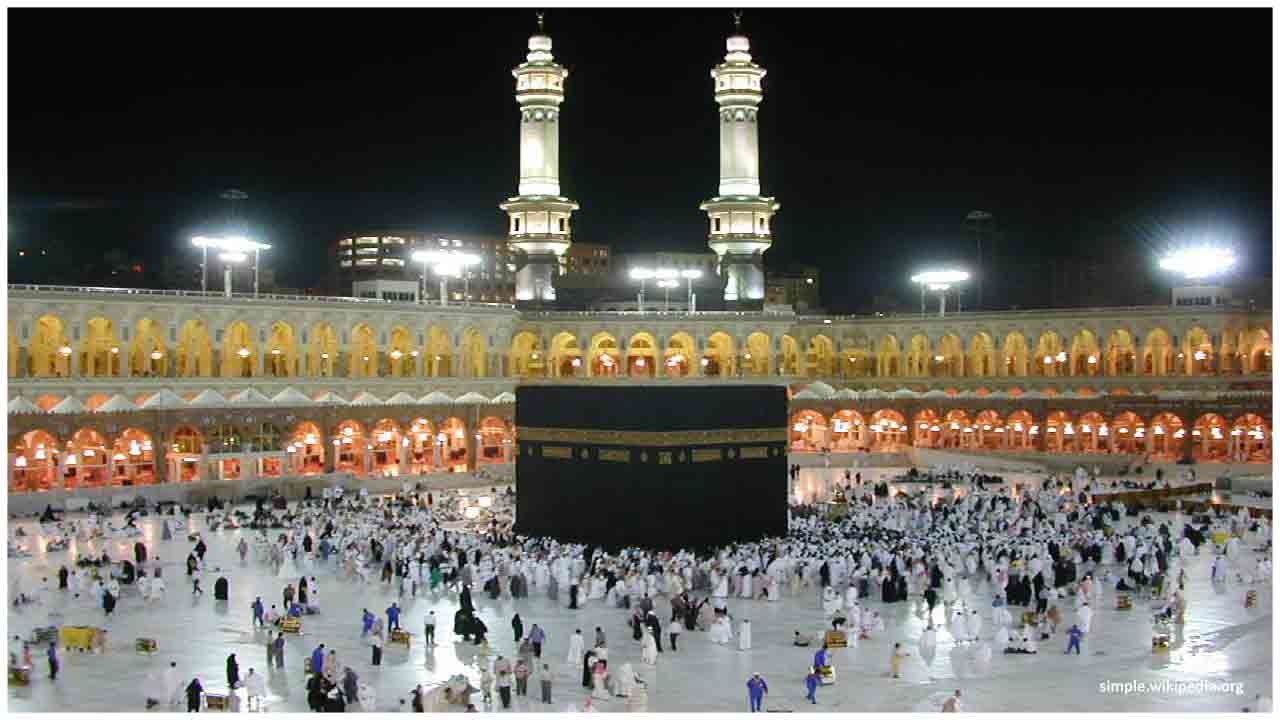Saudi Arabia on Monday declared it would hold a "constrained" hajj this year, with pilgrims as of now in the realm permitted to play out the yearly custom as it moves to check the greatest coronavirus flare-up in the Gulf.
The choice denotes the first run through in Saudi Arabia's cutting edge history that Muslims outside the realm are banished from playing out the hajj, which a year ago drew 2.5 million travelers.
The transition to downsizing the five-day occasion, booked for the finish of July, is full of political and financial hazards and comes after a few Muslim countries pulled out of the custom that structures one of the primary mainstays of Islam.
The realm's hajj service said it will be available to different nationalities as of now in Saudi Arabia, however, it didn't indicate a number.
"It was chosen to hold the journey this year with restricted numbers... with various nationalities in the realm," the official Saudi Press Agency stated, referring to the service.
"This choice is taken to guarantee the hajj is acted in a sheltered way from a general wellbeing point of view... what's more, as per the lessons of Islam."
The hajj, an unquestionable requirement for healthy Muslims at any rate once in the course of their life, could be a significant wellspring of disease as it packs a great many explorers into clogged strict destinations.
The choice comes as Saudi Arabia catches to contain a significant spike in contaminations, which have now ascended to in excess of 161,000 cases - the most elevated in the Gulf - and more than 1,300 passings.
In any case, in spite of the flood, Saudi Arabia on Sunday moved to end an evening time coronavirus check-in time over the realm and lift limitations on organizations, including films and other amusement scenes.
Delicate choice
The declaration to hold a constrained hajj would probably baffle a large number of Muslim travelers around the globe who frequently contribute their life reserve funds and bear long holding up records to make the outing.
Be that as it may, it would probably conciliate household pioneers, who dreaded the custom would altogether be dropped without precedent for late history.
"Saudi Arabia has picked the most secure alternative that permits it to hide any hint of failure inside the Muslim world while ensuring they are not seen as settling on general wellbeing," Umar Karim, a meeting individual at the Royal United Services Institute in London, told AFP.
"Be that as it may, there are heaps of unanswered inquiries: What is the specific number of pioneers that will be permitted? What are the models for their determination? What number of Saudis, what number of non-Saudis?"
Saudi specialists said the hajj service will hold a news gathering on Tuesday to tissue out the subtleties.
In an obvious offer to give the choice a facade of strict approval, the Saudi-based Muslim World League said it supported the administration move for the wellbeing and security of travelers, as indicated by state media.
The choice despite everything dangers irritating hardline Muslims outside the realm for whom religion bests wellbeing concerns.
It could likewise incite Saudi Arabia's adversaries to restore investigation of its custodianship of Islam's holiest destinations - the realm's most remarkable wellspring of political authenticity.
A progression of lethal fiascos throughout the years, including a 2015 charge that murdered up to 2,300 admirers, incited analysis of the realm's administration of the hajj.
"Troublesome year"
A watered-down hajj would speak to a significant loss of income for the realm, which is as of now reeling from the twin stuns of the infection actuated lull and a dive in oil costs.
The littler all year umrah journey was at that point suspended in March.
Together, they add $12 billion to the Saudi economy consistently, as indicated by government figures.
"This has been an extremely troublesome year, with Saudi Arabia confronting declining income from all areas - oil, the travel industry, residential utilization, and now umrah and hajj," Karen Young, a researcher at the American Enterprise Institute, told AFP.
A full-scale hajj with a huge number of travelers was far-fetched after specialists exhorted Muslims in late March to concede arrangements because of the quick spreading malady.
Prior this month, Indonesia, the world's most crowded Muslim country, developed as one of the main nations to pull back from the journey subsequent to squeezing Riyadh for lucidity. An Indonesian priest considered it a "severe and troublesome choice".
Malaysia, Senegal, and Singapore stuck to this same pattern with comparative declarations.

 The decision marks the first time in Saudi Arabia's modern history that Muslims outside the kingdom are barred from performing the hajj
The decision marks the first time in Saudi Arabia's modern history that Muslims outside the kingdom are barred from performing the hajj









.jpeg)






.jpg)




.jpg)





.jpeg)
